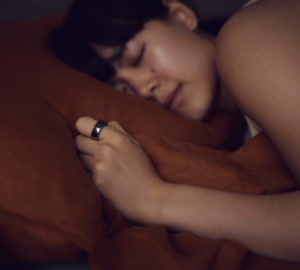- What you eat throughout the day – particularly in the evening – affects your sleep.
- Foods like tart cherries, kiwis, cow’s milk, nuts, and rice have been shown in research to trigger certain hormones like tryptophan and melatonin that can induce sleepiness.
- It’s best to avoid caffeine, alcohol, and high-fat or spicy foods before bed to avoid disrupted sleep.
What you eat affects how you feel. It’s why many people drink coffee in the morning to help them wake up, and why a big bowl of pasta can make you feel sleepy. It’s clear that your diet plays a role in your energy levels.
Certain foods can help to improve your sleep, helping you fall asleep easier and reach deeper stages of sleep. Other foods can hurt your sleep quality, particularly when they’re eaten close to bedtime.
Understanding the Relationship Between Food and Sleep
What you eat affects every function in the body. When you eat a diet rich in nutrients, vitamins, and minerals, your body has everything it needs to function optimally. When your diet is lacking, various systems will be affected – from your energy levels to your skin health, to your sleep.
That’s partly why many vitamin deficiencies are linked to sleep disorders. When those deficiencies are rectified through supplementation or diet change, sleep drastically improves.
Food and nutrients play a crucial role in regulating the body’s circadian rhythm – your internal clock. The nutritional composition and timing of your food influences the production of the hormones and neurotransmitters of the circadian rhythm. For instance, eating late at night can throw off your internal clock, as your body thinks it’s still daytime.
READ MORE: How Late-Night Eating Can Impact Your Sleep
The Nutrients You Need for A Good Night’s Sleep
Tryptophan: Tryptophan, an amino acid found in protein-rich food, is a precursor to serotonin. Serotonin, a neurotransmitter that regulates mood and sleep, is converted to melatonin, the hormone that helps us fall asleep.
Magnesium: Magnesium helps to activate the parasympathetic nervous system, also known as the body’s “rest-and-digest” mode. It relaxes your muscles, which in turn, helps you feel calm and chilled before sleep.
Melatonin: Melatonin, the sleep hormone, is produced at night time to help you fall asleep. This hormone regulates – and is regulated by – the circadian rhythm.
Vitamin B6: Vitamin B6 is involved in the production of serotonin, melatonin, and gamma-aminobutyric acid (GABA), and helps to convert tryptophan into serotonin. Vitamin B6 deficiencies are linked to insomnia and sleep problems. When you consume vitamin B6 near bedtime, it can make you dream more!
Calcium: Calcium combines with tryptophan to increase your body’s production of melatonin. During deep sleep, your serum calcium levels are higher. Studies have found that low calcium levels can cause sleep problems, particularly low levels of REM sleep.
Potassium: Potassium helps the body relax and promotes restful sleep. Interestingly, low potassium levels can cause abnormal dreams and nightmares during sleep – the result is frequent wake-ups throughout the night, and daytime tiredness!
Vitamin D: Vitamin D helps melatonin production. Deficiencies in vitamin D can elevate cortisol levels, which can affect your ability to fall asleep. That’s in part why vitamin D deficiency increases your risk of sleep disorders like sleep apnea.
Best Foods to Eat at Night
1. Tart cherries
Tart cherries are a natural source of tryptophan and melatonin. Per 100 grams, you can expect to get nine milligrams (mg) of tryptophan and 0.3 mg of melatonin. While this is a fairly low concentration, it’s still enough to impact your sleep.
A placebo-controlled study gave a group of participants with insomnia tart cherry juice before sleep. The researchers found that it helped to increase sleep time by 84 minutes and improve sleep efficiency.
2. Kiwis
Kiwis are an antioxidant powerhouse that also contain serotonin, one of the key sleep hormones. A study examined how eating kiwis before bed helped participants sleep. They found that after four weeks, sleep latency decreased (they fell asleep quicker), while total sleep time and sleep efficiency increased.
3. Warm cow’s milk
There’s a reason why babies are soothed to sleep after drinking some warm milk! Drinking warm liquids increases your body temperature, which has a calming effect on your body and mind. After you drink a warm drink, your body regulates by dropping your body temperature, which triggers melatonin.
Cow’s milk, specifically, contains tryptophan and melatonin, which have been shown to enhance sleep quality.
4. Nuts
Most nuts contain the trifecta of sleep vitamins – magnesium, vitamin B6, and potassium — as well as tryptophan, and even melatonin. A one-ounce serving of brazil nuts contains 107 mg of magnesium, cashews have 83 mg, and almonds 76 mg. Meanwhile, pistachios, almonds, and hazelnuts are a great source of melatonin and calcium.
5. Rice
It’s a well-known phenomenon that carbs can make you sleepy. When you eat carbohydrates like rice or pasta, it prompts the release of insulin, which helps the uptake of tryptophan in the brain. When tryptophan levels rise, serotonin increases, making you feel sleepy and drowsy.
Different types of rice – brown or white – have different pros and cons for sleep.
Brown rice contains magnesium, potassium, and calcium, making it a great choice for your evening carbohydrate source. White rice, on the other hand, has had the fibrous coating removed meaning it has a higher glycemic load and lower nutrient profile. This causes a bigger blood sugar and insulin spike and as a result, more noticeable sleepiness once your blood sugar drops.
6. Turkey or chicken
There’s a scientific reason why you feel tired after Thanksgiving dinner! Turkey contains tryptophan, the sleepy chemical. Typically, light meat like chicken, turkey, duck, and pork, contain higher amounts of tryptophan than dark meat.
7. Herbal tea
Certain types of caffeine-free herbal teas have science-backed benefits for sleep, including chamomile, valerian root, and lemon balm.
Make sure to drink up while it’s hot, which can help trigger melatonin.
READ MORE: 9 Science-Backed Herbs and Supplements for Better Sleep
8. Bananas
Wondering which fruits to eat at night? This energy-rich fruit is a go-to choice for sleep. Not only are they a great source of potassium, magnesium, and vitamin B6 – the trifecta of sleep vitamins – they also contain sleep-inducing tryptophan!
| Member Tip: Add a tag when you eat these foods before bed, and use Trends view to see how they impact your sleep. Learn more about using Oura for self-experimentation here. |
4 Foods and Drinks to Avoid Before Bed

1. Caffeine
Caffeine, found in coffee, tea, and energy drinks, is something you want to avoid after midday. The average half-life of caffeine is five hours, which means after five hours, you’ll still have half the amount of caffeine in your system. When caffeine is in your system it blocks adenosine, one of the neurotransmitters that promotes relaxation and drowsiness.
Normally, adenosine builds up throughout the day so that come evening, you’re ready for sleep. When this is blocked, you’ll struggle to fall asleep. That’s why caffeine consumption is linked to insomnia and daytime sleepiness.
READ MORE: The Impact of Caffeine on Sleep
2. Alcohol
You may think that your evening wine helps you fall asleep, but it impairs your overall quality of sleep. It decreases melatonin, inhibits REM sleep, and reduces the total duration of sleep.
| Member Tip: Oura members often notice that alcohol impacts their Sleep and Readiness Scores for multiple days after. Read more about why this Oura member decided to quit alcohol. |
READ MORE: How Alcohol Impacts Your Sleep
3. Spicy foods
Spicy foods can cause indigestion and heartburn, and raise your body temperature as your body tries to digest them. This is a recipe for poor sleep. If you’re going to eat spicy foods, eat them alongside a glass of cow’s milk. This will break down capsaicin, the compound notorious for causing heartburn and acid reflux!
4. High-fat foods
You may want to avoid high-fat foods like burgers, fries, heavy cream, and soft cheese, if you want a good night’s sleep. They are hard to digest, causing an increase in stomach acid to help break them down. This can exacerbate acid reflux, or at the least, cause frequent wake-ups and less sleep overall.
Eat Well, Sleep Well
It’s not just what you eat. It’s also when you eat, and how much. You can use Tags on your Oura app to log when you have a heavy meal, caffeine, and alcohol to see how they affect your Readiness and Sleep Score.
When you eat a nutrient-rich, wholefood diet, you’ll likely notice improvements in your daily energy levels and the quality of your nightly sleep.
READ MORE: 5 Ways to Upgrade Your Sleep Hygiene











